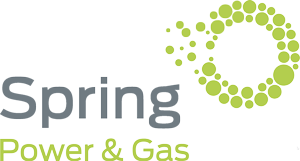Across the globe, and especially in the United States, natural gas is an abundant resource. Thanks to new discoveries and extraction methods, we have seen a significant improvement in shale gas development, which has led America to become the world’s leading natural gas producer. The U.S. now produces nearly all of the natural gas it uses. In fact, U.S. natural gas production in 2018 was the highest ever recorded, at about 30.6 trillion cubic feet.
The U.S. Energy Information Administration estimates at least 6,800 trillion cubic feet of proved natural gas reserves. While it is certainly an abundant, efficient, and inexpensive source of available energy, there are both advantages and disadvantages to natural gas use. Keep reading to learn about some of the pros and cons of natural gas.
Advantages of Natural Gas
1. Natural gas is abundant and a major source of energy
According to the U.S. Energy Information Administration (EIA), the United States is flooded with natural gas, with enough to last the rest of this century given 2018 production rates. EIA says there were about 2,276 trillion cubic feet of technically recoverable “dry,” or consumer-grade, natural gas resources in the U.S. in January 2013, with total proved reserves of gross natural gas worldwide at 6,846 trillion cubic feet.
2. Infrastructure already in place
The technology used to produce natural gas already exists and the familiarity with the current technology makes it easier for us to harness it. It is used more and more for power generation and heat.
3. Natural gas can be easily transported
Lighter than gasoline or oil, with a smaller transportation carbon footprint, natural gas can be easily transported via ships, tankers, and pipes, and is a viable option for use in homes.
4. Natural gas produces less overall pollution
As its byproducts are in gaseous form, natural gas burns cleaner than gasoline or diesel. It releases 45% less carbon dioxide than coal and 30% less than oil and has therefore an overall smaller impact on the environment.
Since the process of natural gas combustion is almost up to the mark, the level of byproducts disseminated to the environment is minimal, so natural gas also beats out other fossil fuels when it comes to being a clean burning energy source.
In addition, since natural gas alleviates any need for an underground storage tank, it eliminates potential soil contamination, oil spills and unanticipated clean-up of the environment.
Disadvantages of Natural Gas
1. Natural gas is a nonrenewable resource
As with other fossil energy sources (i.e. coal and oil) natural gas is a limited source of energy and will eventually run out. Although it is a non-renewable and non-sustainable energy source, it can still play an important role in the long-term sustainability of our planet. Natural gas can be used to advantage as a “cleaner” alternative for oil and coal until renewable energy dominates the energy mix of the world.
2. Storage
While natural gas is easier to store and transport, its volume is four times that of gasoline, so natural gas producers have to spend more on storage.
3. Natural Gas Emits Carbon Dioxide
This is by far the biggest disadvantage of natural gas. In the conclusion of this post, we’ll discuss how you can sustainably offset your natural gas usage with carbon offsets.
4. Natural gas can be difficult to harness
To use natural gas, all of the components (except methane) have to be extracted. This results in several byproducts such as hydrocarbons (ethane, propane, etc.), sulfur, water vapor, carbon dioxide, and even helium and nitrogen.
Natural gas was first put to use in the early 1800s to power street lights, and used for heating and cooking in the 1900s, but it was used much less than coal and oil. As methods for extracting and transporting it have improved dramatically over the last fifty years, natural gas really took off. It is now seen as cleaner and cheaper than coal, and supplies 22% of the world’s energy—used in heating, generating electricity, and even fueling engines.
Natural gas has both advantages and disadvantages. Despite the cons, natural gas remains one of the most inexpensive and easily available fossil fuels in this world and can serve as a viable alternative to other fossil fuels until something more efficient can be found. Natural gas is unarguably a growing industry, and with further developments in technology is one that can certainly help pave the way to a sustainable future.
Tips to Help Reduce Your Natural Gas Usage
In addition to reviewing the advantages and disadvantages of natural gas, it’s worth learning how to reduce gas usage, potentially reducing your carbon footprint and utility bill. Simple tips for reducing gas usage include:
- Use a Programmable Thermostat: Programmable thermostats can help reduce overall usage by allowing you to set temperatures throughout the day. For example, you can set the thermostat to lower temperatures while you’re at work.
- Insulation and Weatherproofing: If your home isn’t properly insulated and weatherized, heat will escape through cracks and crevices in windows, doorways, attics, and garages. This increases gas usage, and the HVAC system must work harder to maintain comfortable temperatures.
- Check Vents for Impeded Airflow: Double-check to ensure furniture, rugs, and appliances don’t block air vents in your home. Blocked vents can impede airflow, so the HVAC will work harder and use more energy for adequate temperature control.
- Maintain the Furnace: Give your furnace the attention it needs with routine professional maintenance services and regular air filter replacements to keep it running at its best.
- Consider Turning Down the Thermostat: You can significantly reduce gas usage with every degree you lower your thermostat by. Even a slight reduction can go a long way.
How You Can Offset Your Gas Usage with Carbon Offsets
Spring Power & Gas offers natural gas plans that match 50% or 100% of our customers’ gas usage with our Spring Green 50 or Spring Green 100 plans. In doing so, we offset carbon emissions with eco-focused projects that prevent deforestation and reduce the levels of CO2 in the atmosphere. We offer our services in Maryland, Pennsylvania, and New Jersey. Give us a call to enroll today! 1-888-710-4782.


